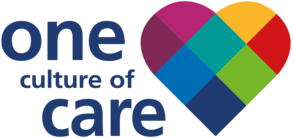The Community Specialist Respiratory team are a small team which have the very fortunate position of working across all three disciplines in the NHS.
Predominantly they work in the community but have really good relationships across primary care and in Calderdale Royal Hospital.
And their work has received excellent feedback with a fab example below.
One of their main roles is educating people around their disease areas and supporting self-management. This is carried out with the aid of written self-management plans and the treatment to assist this.
However there are a group of people who are unable to recognise the signs and symptoms of an exacerbation until it’s too late, causing severe symptoms or admissions to hospital.
In this instance they use Telehealth, which is a method of home monitoring. Each person gets a tablet and a sats probe, issued by the company Baywater H.C. On a daily basis people will log on to it and answer questions which the team has devised from the self-management booklet. These include cough, sputum, chest tightness, wheeze, breathlessness and they submit their answers along with their oxygen saturations and pulse readings.
Every day these are actioned and if the team feels they need to commence treatment they can contact them. They can then continue to monitor from afar and intervene further if required.
This has made a significant difference to people’s lives and have received excellent feedback as below in this family's own words.
-----------------------
In 2017, my father had two severe episodes of chest infections progressing to pneumonia and sepsis on one episode. Both requiring an in patient stay.
Due to his co-morbidities, he struggled to differentiate his symptoms and didn't always recognise when he was beginning to de-saturate. On discharge from hospital, dad was well supported by the Calderdale Community Respiratory team and they supported him to achieve his rehab goals.
This was achieved through exercise, education and significantly, provision of telehealth.Even though telehealth is not evidence based, it plays an important role in the education and health of patients.
Telehealth was set up to ask simple questions each day and track his O2 sats. Initially, both mum and dad were nervous of the technology (fear if the unknown! ) but very quickly found that it gave peace of mind, confidence to contact the respiratory team and GP.
Certainly to my knowledge, the use of telehealth was crucial in the early detection and treatment of three chest infections. The point being that at detection by telehealth, dad was only mildly symptomatic but on sputum testing he was confirmed to have an infection. Infection that, I believe, would have taken a more severe hold, had detection and treatment not commenced in a timely manner.
With telehealth, came a sats monitor and this was also massively helpful for dad to understand when he needed to slow down, rest, pace...do as he was told!
We are not always that great at listening to our other halves.... and it really helped mum manage him too. Because the results of telecare were self explanatory, so she didn't feel like she needed to nag so much.... it also meant she wasn't pestering the respiratory team or GP... was he brewing something or not? The telehealth helped her along with dad, understand his chest condition and seek guidance in the right way.
Not the team thought she was a pest! But, as you well know people don't want to be a burden and the telehealth gave them a degree of control, education and autonomy with full confidence of knowing the respiratory team were there in the wings!
May I take this opportunity to say a huge thank you to all the respiratory team did for dad. I truly believe that without telehealth, we would have lost him to a chest infection sooner.


